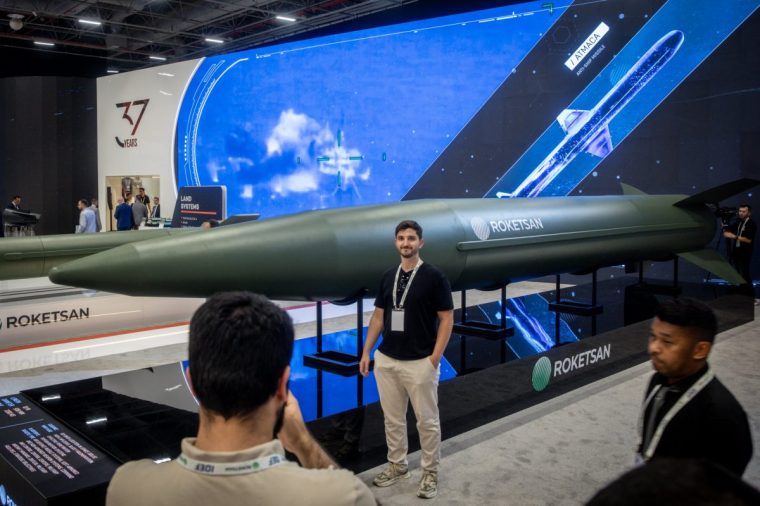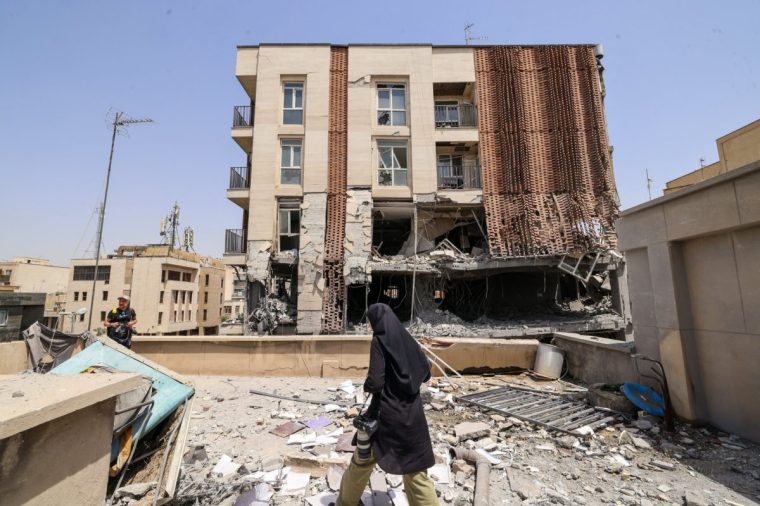Escalating tensions and regional ambitions could lead to confrontation, with both countries occupying territory in Syria
Escalating tensions between Israel and Turkey have raised the threat of conflict between the regional powers, with Syria a potential flashpoint, according to regional security experts.
This week, Turkish Foreign Minister Hakan Fidan said Ankara would intervene against any move to divide Syria, following Israeli incursions and air strikes targeting government buildings and forces during deadly sectarian clashes.
Fidan said that if Turkey saw efforts to “fragment and destabilise” the country, “we will consider this a direct threat to our security and intervene”.
Israel has occupied territory it calls a “buffer zone” in southern Syria since the overthrow of Bashar al-Assad last December and says it will enforce a policy of “demilitarisation” of Syrian territory south of Damascus.
Some Israeli officials such as far-right Finance Minister Bezalel Smotrich have called for the country to be partitioned. Israel has supported Syrian minorities such as Druze and Kurdish groups that are seeking autonomy or independence from Damascus.
Turkey, which has occupied swathes of northern Syria since 2016 during the 13-year civil war, has fought a decades-long conflict against Kurdish militant factions, which it considers terrorists. The largest of these, the PKK, recently agreed to disarm.
Ankara has established close relations with the new Syrian government, having previously aligned with the Islamist group HTS that led the overthrow of Assad, which now dominates the new administration.
Syria requested support from Turkey to rebuild its defence capabilities this week, Turkish officials said, with local media reports claiming Syria has already begun to receive armoured vehicles from its ally.
Israel’s military campaigns in the Middle East over the past two years have raised anger and alarm in Ankara.
Turkey announced the suspension of trade ties with Israel last year over its conduct in Gaza. President Reccep Tayyip Erdogan has compared Benjamin Netanyahu to Hitler, and Turkish officials have called for military intervention against Israel.
Relations between the countries are now in “crisis” and competing agendas could lead to confrontation, believes Dr Ali Bakir, a Middle East security analyst at Qatar University and the Atlantic Council.
“Israel’s expansive and highly destabilising agenda in the region, but particularly in Syria, poses significant risks to Turkey’s national security and regional stability,” he said. “This agenda, aimed at fragmenting Syria into sectarian or ethnic enclaves, raises the likelihood of both direct and indirect clashes involving Ankara.”
Clashes could involve “various tactics”, suggested Dr Bakir, potentially including deniable “grayzone” sabotage operations as seen in Iran, conflict through proxies, or even direct exchanges of fire.
The two countries established a deconfliction line in April, reportedly after Israel bombed sites in Syria that Turkey intended to use as military bases, but there has been little recent dialogue between the governments, the analyst said.
Israeli analysts have also raised the prospect of a conflict with the Nato member.
“Turkey is our next enemy,” declared Yoni Ben Menachem, a political and military analyst with close ties to the defence establishment, on Israeli TV this week. Jonathan Adiri, who served as an adviser to former President Shimon Peres, wrote that the two countries are already engaged in a “cold war.”

Earlier this year, an Israeli government report on defence and security warned of the threat of clashes with Turkey in Syria.
“The presence of Turkish forces in Syria could deepen the prospect of a direct Turkish-Israel conflict,” the report stated, suggesting Ankara is seeking control of the country as part of its “dream” of restoring the Ottoman empire.
Professor Kobi Michael, a military analyst at Israeli think tanks the Institute for National Security Studies and the Misgav Institute, said that Turkish-Israeli relations have reached a “catastrophic situation” after a brief thaw under Netanyahu’s predecessor Naftali Bennett.
Among the sources of friction is Turkey’s alleged hosting of Hamas leaders, such as politburo chief Khaled Meshaal, and close relations with the militant group, said Michael.
The analyst also believes that Erdogan has ambitions to make his country the dominant regional power and “expand Turkish hegemony in the broader Middle East,” with Syria a key target.
Israel’s agenda in Syria is different, he claims. “We don’t have any territorial demands there, but as long as we are not sure the regime in Syria is stable enough and reliable enough, we will remain there.”
“This is something the Turks really don’t like,” he adds, and while both powers have a major military presence inside the country “it increases the probability for military clashes between Israel and Turkey”.
Israel’s military doctrine has become bolder since the Hamas attacks of 7 October 2023 and subsequent wars, with greater willingness to engage threats and potential threats beyond its borders.
This has only become more ambitious with every military success, according to former Israel diplomat Itamar Rabinovich, who recently described the doctrine as “a very strange mixture of paranoia following 7 October and a sense of power following the success in Lebanon and in Iran”.

Tom Barrack, the US ambassador to Turkey and envoy to Syria, said this week that Israel sees strong states in the region as a threat even if they are not overtly hostile, in light of Israeli attacks on Syria after the government said it had no interest in conflict with Israel.
“Strong nation-states are a threat – especially Arab states are viewed as a threat to Israel,” the diplomat said, suggesting Israel would prefer to see the country divided.
Israel’s posture has contributed to Turkey’s accelerating military build-up, analysts say, with Ankara this week unveiling new hypersonic missiles, and closing on a purchase of new fighter jets from the UK and European partners that could close the gap to Israel in air power.
Israeli opposition leader Yair Lapid described the acquisitions as “dangerous”. An Israeli security official told Jerusalem Post this was “a clear and worrying signal that Turkey is accelerating its arms build-up in a way that could eventually challenge Israel’s military edge in the region.”
Dr Bakir says Ankara’s “military modernisation and development of an indigenous defence industry are driven by broader strategic goals beyond simply responding to Israel,” adding that Turkey is “the most powerful regional country in terms of conventional military strength and possesses the second-largest army in Nato”.
Israel’s wars in the region have “led to growing domestic calls for Turkey to develop nuclear capabilities,” he said but suggested this was unlikely to materialise in the short term.
“Both sides will make efforts to prevent a collision,” said Michael, noting that both are close US allies and have much to lose. But the situation has become “very delicate”, he said. “And this is the place for very wise statesmanship.”
